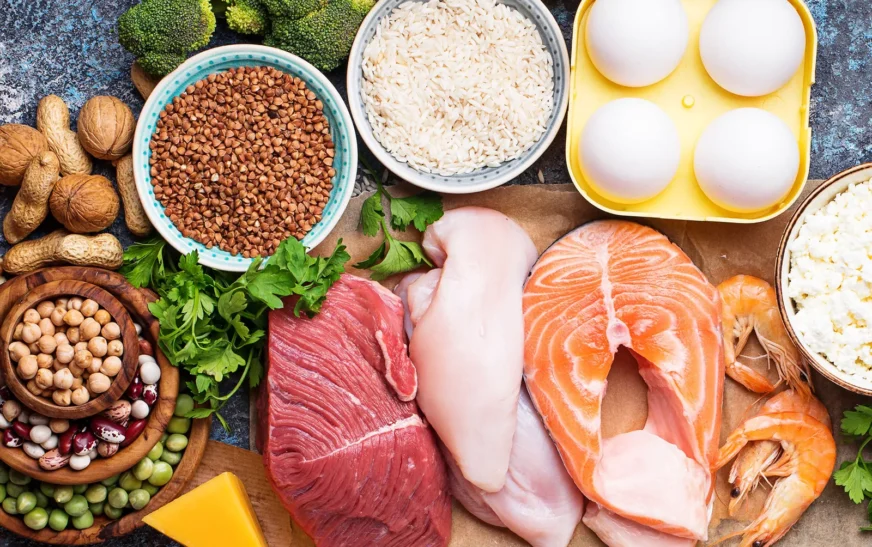By Ariwodo Chiamaka Preciousgift
Protein is the MVP of nutrients, crucial for building and repairing tissues, producing enzymes, and maintaining a strong immune system. Yet, in the hustle and bustle of daily life, it’s easy to overlook whether you’re getting enough of it. But don’t worry—your body has its way of sending out an SOS. Here are eight signs that might indicate you’re not getting enough protein:
- Constant Cravings and Hunger Pangs
Are you reaching for snacks every couple of hours? If you find yourself constantly hungry, it might be your body’s way of signaling that it needs more protein. Protein helps keep you full by stabilizing your blood sugar levels, so a diet lacking in it can leave you feeling hungry and unsatisfied. - Muscle Loss and Weakness
If you’ve noticed that your muscles are shrinking or you feel weaker during workouts, your body might be breaking down muscle tissue for protein. This is especially common if you’re not consuming enough protein while engaging in regular physical activity. Protein is essential for muscle maintenance and growth, so without it, your gains might be at risk! - Slow Recovery from Injuries
Scrapes and bruises sticking around longer than usual? Protein plays a critical role in tissue repair. A diet lacking in protein can slow down your body’s ability to heal itself, meaning those minor cuts and bruises might hang around a bit longer than they should. - Thinning Hair, Brittle Nails, and Dry Skin
Your hair, skin, and nails are made primarily of proteins like keratin and collagen. When protein intake is insufficient, these parts of your body might start showing signs of distress. Thinning hair, brittle nails, and dry, flaky skin could all be indicators that your body isn’t getting the protein it needs. - Frequent Infections
Protein is crucial for a healthy immune system. If you’re constantly battling colds, flus, or other infections, it could be a sign that your immune system is compromised due to a lack of protein. Your body needs protein to produce antibodies that help fight off infections, so without enough of it, your defenses might be down. - Brain Fog
Having trouble focusing or remembering things? Protein is essential for producing neurotransmitters—chemicals that transmit signals in your brain. If you’re not getting enough protein, your brain might not be firing on all cylinders, leading to difficulty concentrating, forgetfulness, or just feeling a bit “foggy.” - Edema (Swelling)
Notice some unexpected puffiness in your legs, ankles, or feet? Edema, or swelling caused by fluid retention, can occur when your body lacks protein. Proteins help maintain the balance of fluids in your body, so when there’s a shortage, fluid can leak into tissues and cause swelling. - Mood Swings and Irritability
Feeling more irritable than usual? Your mood could be linked to your diet. Protein influences the production of neurotransmitters like dopamine and serotonin, which play a key role in regulating your mood. Without enough protein, you might find yourself feeling more anxious, depressed, or irritable.
Recognizing these signs early can help you adjust your diet and ensure you’re meeting your body’s protein needs. So, if you’re experiencing one or more of these symptoms, it might be time to take a closer look at what’s on your plate. Adding more protein-rich foods like lean meats, fish, eggs, legumes, and dairy products could be just what you need to get back on track.
READ ALSO: Ihesiulo Grace Amarachi – CEO of AdaEventsNews Nigeria
Remember, your body is like a finely tuned machine—it needs the right fuel to run smoothly. By ensuring you’re getting enough protein, you’ll not only feel better physically but mentally too. So, go ahead and treat yourself to that extra serving of chicken or that delicious lentil soup—your body will thank you for it!







